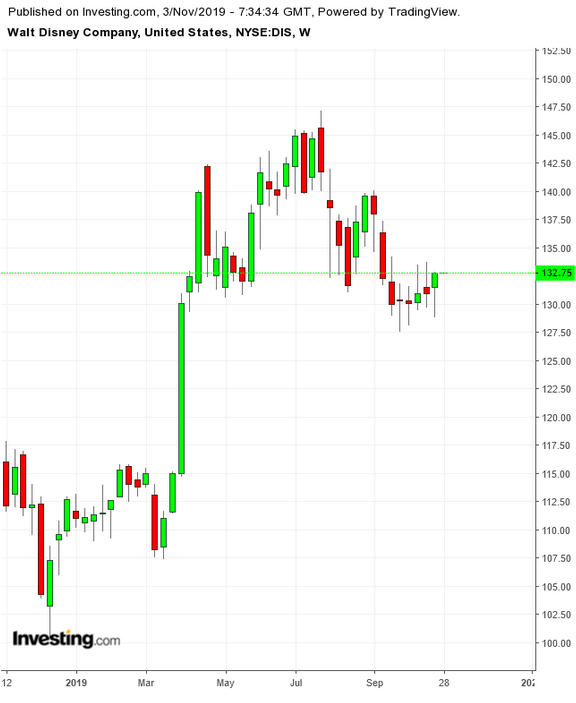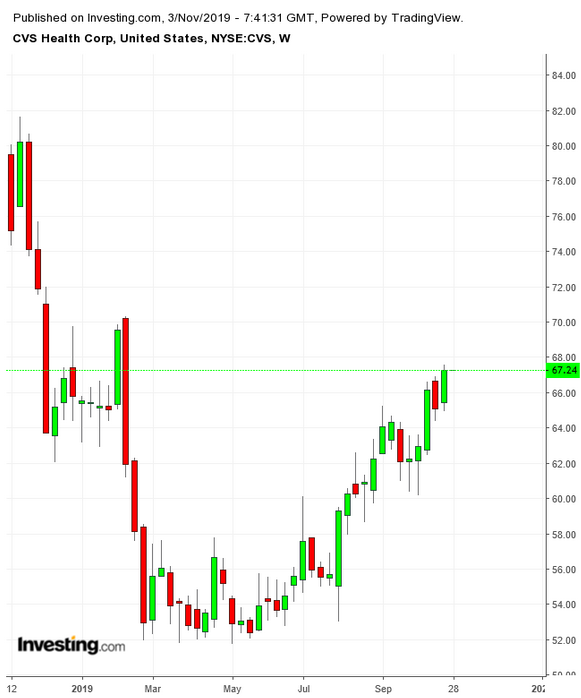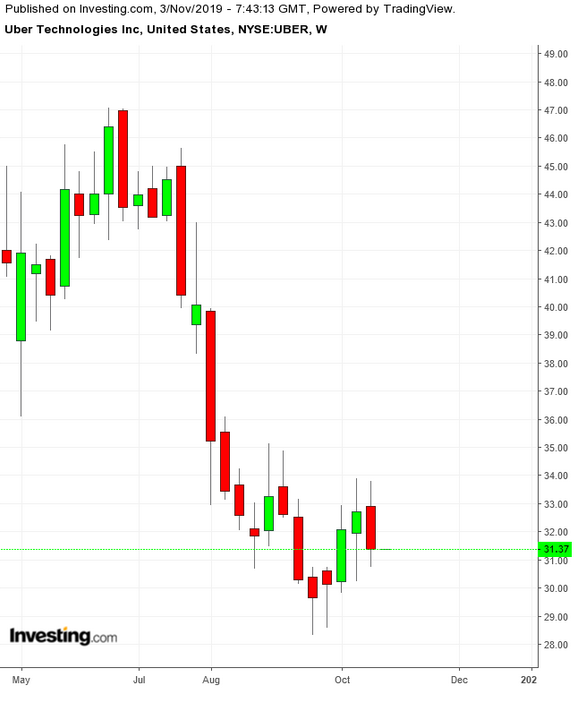After absorbing a variety of better than expected major earnings reports over the past two weeks, investors are becoming convinced that corporate America hasn’t run out of steam. Indeed, given the preponderance of beats, it's not surprising that major U.S. indices have crossed new highs.
All major U.S. benchmarks, including the S&P 500, Dow and NASDAQ, surged about 1% on Friday, during the last session of the week, deriving confidence from both positive earnings and a strong October jobs report that showed companies had added 128,000 new positions. That topped the 75,000 analysts anticipated.
In the upcoming week, we'll still see a few big names from different sectors of the economy report their numbers. A few additional earnings beats accompanied by some positive forward guidance could help boost equities yet more. Here's what we're watching:
1. Disney
Shares of the Walt Disney Company (NYSE:DIS), which have languished for the past six months, could face another bumpy ride on Thursday, Nov. 7 when the House of Mouse reports its Q4 2019 earnings after the market close. Expectations are for an EPS of $0.94 on revenues of $19.29B.

Analysts anticipate about a 35% plunge in profits from the same period a year ago, as the company ramps up spending on its new TV-streaming service. Investment in its Disney+ online-video app and its recent takeover of 21st Century Fox could continue to weigh on results.
After having had a strong run early in the year, the entertainment conglomorate's stock has lost about 10% as the owner of popular theme parks as well as film and animation studios enters the streaming-video business to challenge the dominance of Netflix (NASDAQ:NFLX). Shares of Disney closed on Friday at $132.75.
Continued expenses related to launching Disney+—which requires dozens of hours of newly produced programming—should lead the company’s direct-to-consumer division to losses of about $900 million in the quarter that ended in September, according to the company’s guidance.
Disney+ will be available as a bundle along with its ESPN+ and Hulu offerings for $12.99 from Nov. 12, the same price as Netflix’s most popular subscription plan. Disney+ on its own will cost $6.99 at launch, according to the company.
2. CVS Health
CVS Health (NYSE:CVS) reports on Wednesday, Nov. 6, before the market opens. For the third quarter of 2019, analysts expect earnings per share of $1.77, which would represent 2% growth year-over-year. Sales are likely to gain about 25% to $63.02 billion when compared to the same period a year ago.

The drug store chain raised its 2019 earnings forecast in August for the second time this year, helped by growing revenue and profit at the company’s drug benefits unit. CVS’s success is being driven by a diverse mix of corner pharmacies, drug benefit-related services and health insurance is a strength that competitors are lacking.
At the same time that the Rhode Island-based health services company raised its forecast, retail rival Walgreens Boots Alliance (NASDAQ:WBA) has been slashing costs and closing stores. In August the company announced it would shut down 200 more U.S. locations, according to Bloomberg.
On its last conference call, CVS executives said the healthcare company will open fewer drugstore locations this year than it has in the past, in order to focus instead on converting existing stores to new hubs with extended health-related services.
CVS’s strong growth forecasts have helped its shares, which rose more than 17% in the past six months, outperform peers. The stock closed on Friday at $67.24 after gaining more than 1% for the day.
3. Uber Technologies
The world’s largest ride-hailing company, Uber Technologies (NYSE:UBER), is scheduled to report Q3 earnings on Monday, Nov. 4 after the market close. According to analysts’ consensus forecast, Uber will announce a loss of $0.7 a share on sales of $3.63 billion.

Investors haven’t shown much faith in the future of Uber since its initial public offering (IPO) in May. Shares of the company have been in a downward spiral as Uber struggles to show a path to profitability.
Technology companies showing losses while they're in a growth phase isn't surprising. But what’s creating doubts about the San Francisco-based company is the absence of a clearly articulated strategy that could turn this unicorn into a profitable enterprise.
This uncertainty has weighed severely on Uber shares. Since its May 10 IPO, the stock has dropped 30%. It closed on Friday in New York at $31.37, down about 0.40% for the day.
